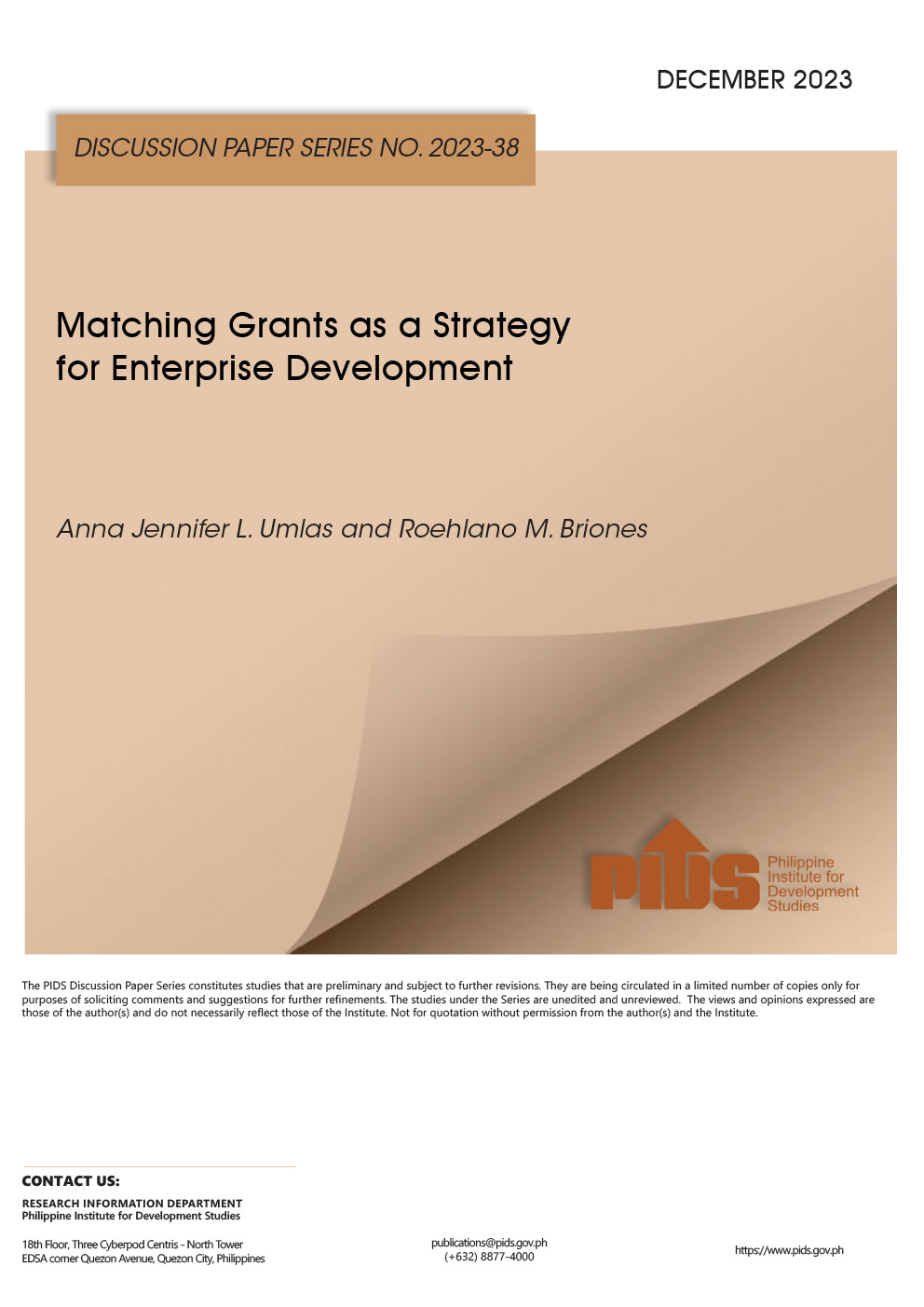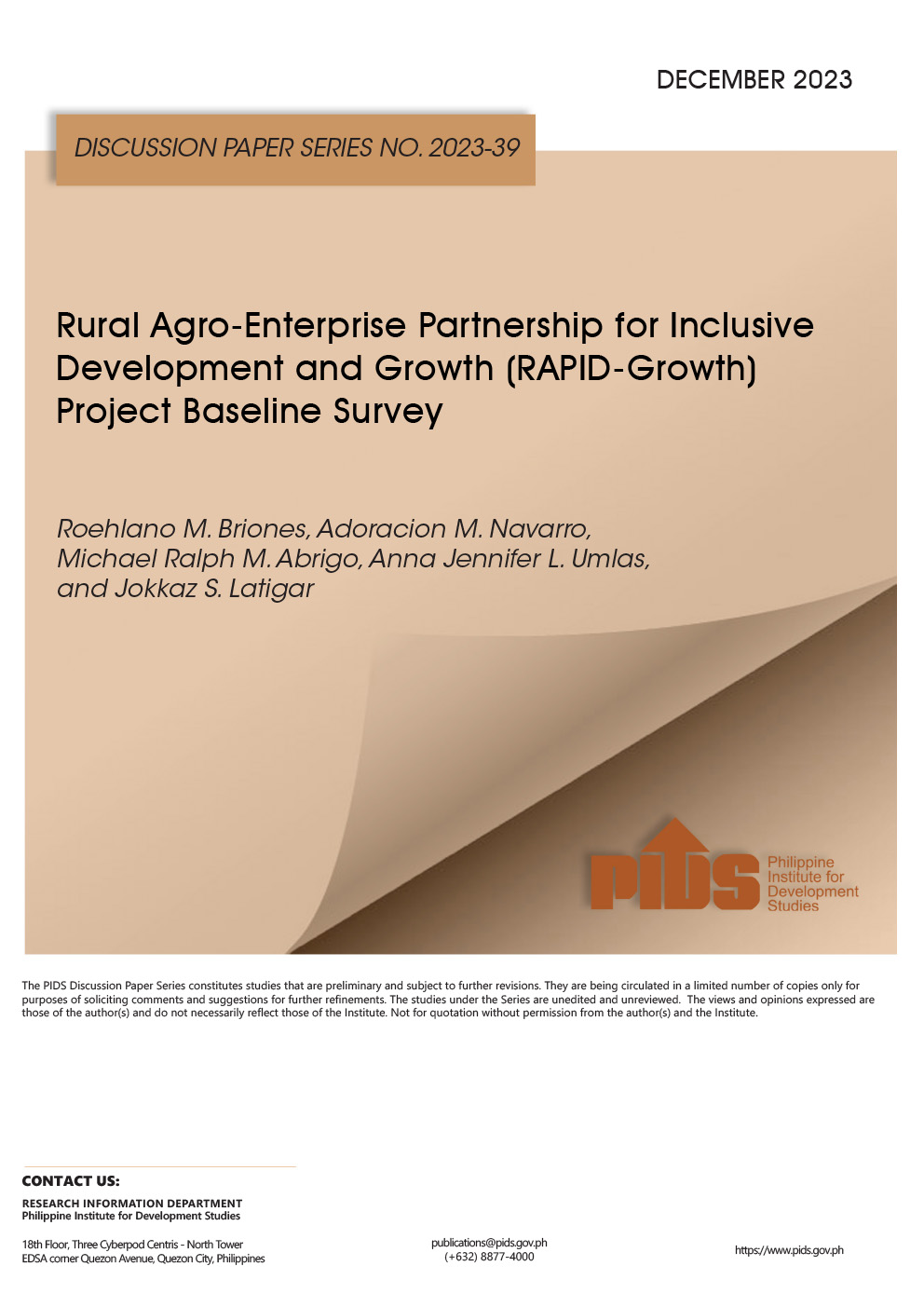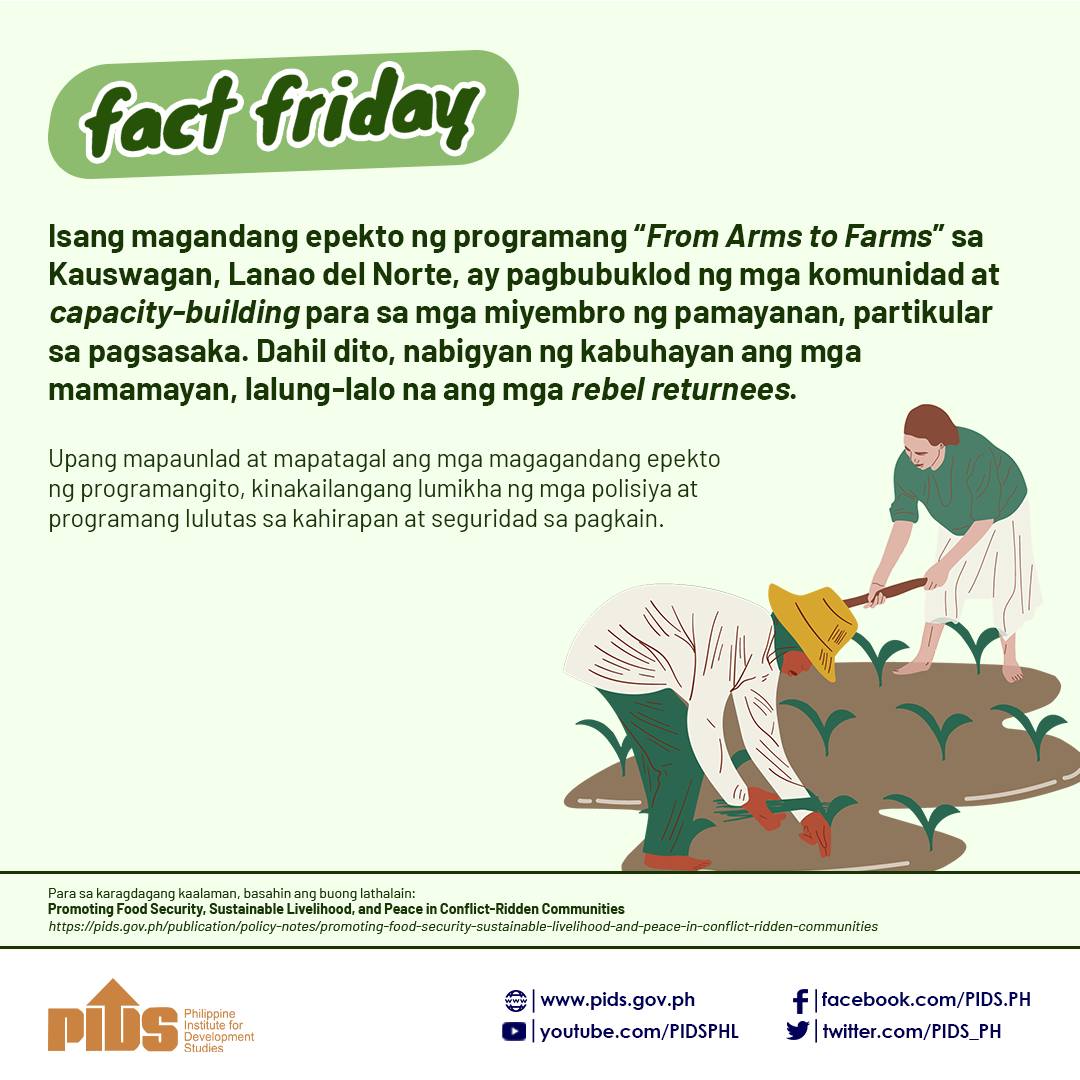While concerned government agencies announced our country is already “bird flu-free,” Sen. Cynthia Villar, chairman of the Senate committee on agriculture, is not about to declare it’s a close case yet. From the assessment of government authorities on the bird flu incidence, part of the problem found was the delayed response when cases of afflicted poultry farms in San Luis, Pampanga were first detected in April this year.
As it turned out, the problem was largely due to devolution of agriculturists to the local government units (LGUs) who are not reporting directly to the national government. As explained by the Department of Agriculture (DA), Villar cited, early detection of the bird flu would have prevented its spread to other poultry farms that reportedly reached as far as Nueva Ecija. To address this problem, she underscored the need for coordination by the LGUs with the DA through a coordination mechanism.
Speaking at our Kapihan sa Manila Bay, Sen. Villar noted with approval the statements issued by DA Secretary Manny Piñol that the DA would enter into a memorandum of agreement with the Department of Interior and Local Government (DILG) to implement this coordination system.
Offhand, the Senator sees no need for any remedial legislation to implement such measure because it is only a matter of implementation by the Executive branch.
On a positive note, Sen. Villar welcomed the statements issued by DA Secretary Manny Piñol that the DA would enter into a memorandum of agreement with the DILG to implement this coordination system. She reminded though the respective heads of the DA, the DILG and the Department of Health that they still need to submit their reports on measures being taken to prevent a recurrence or repeat of the bird flu incidence in the Philippines.
The DA Secretary announced last week the bird flu crisis in Central Luzon is over as he lifted the quarantine restriction in the seven-kilometer controlled area radius around the farming towns of San Luis, Pampanga and Jaen and San Isidro, Nueva Ecija following the recommendations of biosecurity experts. But not after hundreds of thousands of fowls were culled in the said areas to contain the virus.
Piñol admitted the total impact of the bird flu crisis in the affected areas is still unquantifiable. By his rough estimates, the government will shell out a total of P48 million for it as DA had started paying the farmers whose fowls were culled.
Villar, who also chairs the Senate committee on environment and natural resources, underscored the important linkage of agriculture with climate change, especially to a disaster-prone country like the Philippines.
Our country’s agriculture, she noted, is divided into three sectors, namely, 50 percent crops; 33 percent poultry, dairy and live stocks, and 15 percent fishery.
She is crafting a proposed bill to provide insurance to all agricultural sectors who suffer damages or losses due to typhoons and other natural disasters. Currently, there is the Philippine Crop Insurance Corp. but the Senator would like to expand and increase the coverage and not just limited to crops.
In the recent bird flu incident, she noted with concern many poultry farms have suffered heavy losses even as the government through the DA provided subsidy for the culling of affected chicken and ducks. With an insurance coverage, she pointed out, the poultry farmers and owners can claim insurance and not just rely or wait for subsidy from the government.
At the same weekly breakfast forum, the Senator explained her pet bill to institutionalize the 900 or so farm schools all over the country in support of increased agricultural productivity and poverty reduction measures.
At present, she cited, their family-run Villar Sipag Foundation has adopted several farm schools in support to the meager government subsidy they get from the Technical Education and Skills Development Authority (TESDA).
Towards this purpose, Sen.Villar disclosed, she is taking the opportunity of the on going Senate public hearings on the proposed 2018 budget bill to set aside special purpose funds to finance agriculture training support for the farm schools out of the various departments.
According to the study of the Philippine Institute for Development Studies (PIDS), she noted there are four major reasons why Filipino farmers are not competitive and don’t earn enough. The PIDS cited the following reasons: lack of technology; lack of mechanization; lack of financial literacy; and lack of ability to access cheap credit.
“We thought that will be solved through education,” Sen.Villar pointed out, adding because farmers don’t know any better how to run a family farm business. “We have to teach our farmers how to be a small businessman and make sure that they earn. Because if they don’t earn, their children will not continue the farm,” she stressed.
As it is at present, she rued that it has not been profitable for Filipino farmers through these years even as they toil harder to till their lands. “So people are leaving agriculture. We have to make it profitable. That’s what we are doing by teaching them how to make it profitable so that they will stay in agriculture,” she explained.
She particularly raised alarm on the prediction made by the United Nations Food and Agriculture Organization that if we are not able to maintain our family farms in the world, we will have a food shortage 33 years from now, or in 2050.
“So it is important for our food security that we make the farms profitable so that the children of farmers will continue their farms,” she urged.
Under her bill, small farms that have at least one-hectare size, can establish a farm school, and accredit it as TESDA. In turn, TESDA will pay for the tuition of students. “I want a farm school in every town of the Philippines,” she vowed.
“We cannot leave agriculture because our food security depends on agriculture,” Sen. Villar warned.
The Senator is known for her wide business management background and education, not to mention her experience running a successful family business conglomerate under the flagship of Vista Land with husband former Senate president Manny Villar. “I think I can see the application better because I came from business so I know how to apply things,” she said.
While her advocacies are not as controversial, Sen. Villar believes in constructive legislation that would redound to the benefit of majority of Filipinos, especially on food security.
As it turned out, the problem was largely due to devolution of agriculturists to the local government units (LGUs) who are not reporting directly to the national government. As explained by the Department of Agriculture (DA), Villar cited, early detection of the bird flu would have prevented its spread to other poultry farms that reportedly reached as far as Nueva Ecija. To address this problem, she underscored the need for coordination by the LGUs with the DA through a coordination mechanism.
Speaking at our Kapihan sa Manila Bay, Sen. Villar noted with approval the statements issued by DA Secretary Manny Piñol that the DA would enter into a memorandum of agreement with the Department of Interior and Local Government (DILG) to implement this coordination system.
Offhand, the Senator sees no need for any remedial legislation to implement such measure because it is only a matter of implementation by the Executive branch.
On a positive note, Sen. Villar welcomed the statements issued by DA Secretary Manny Piñol that the DA would enter into a memorandum of agreement with the DILG to implement this coordination system. She reminded though the respective heads of the DA, the DILG and the Department of Health that they still need to submit their reports on measures being taken to prevent a recurrence or repeat of the bird flu incidence in the Philippines.
The DA Secretary announced last week the bird flu crisis in Central Luzon is over as he lifted the quarantine restriction in the seven-kilometer controlled area radius around the farming towns of San Luis, Pampanga and Jaen and San Isidro, Nueva Ecija following the recommendations of biosecurity experts. But not after hundreds of thousands of fowls were culled in the said areas to contain the virus.
Piñol admitted the total impact of the bird flu crisis in the affected areas is still unquantifiable. By his rough estimates, the government will shell out a total of P48 million for it as DA had started paying the farmers whose fowls were culled.
Villar, who also chairs the Senate committee on environment and natural resources, underscored the important linkage of agriculture with climate change, especially to a disaster-prone country like the Philippines.
Our country’s agriculture, she noted, is divided into three sectors, namely, 50 percent crops; 33 percent poultry, dairy and live stocks, and 15 percent fishery.
She is crafting a proposed bill to provide insurance to all agricultural sectors who suffer damages or losses due to typhoons and other natural disasters. Currently, there is the Philippine Crop Insurance Corp. but the Senator would like to expand and increase the coverage and not just limited to crops.
In the recent bird flu incident, she noted with concern many poultry farms have suffered heavy losses even as the government through the DA provided subsidy for the culling of affected chicken and ducks. With an insurance coverage, she pointed out, the poultry farmers and owners can claim insurance and not just rely or wait for subsidy from the government.
At the same weekly breakfast forum, the Senator explained her pet bill to institutionalize the 900 or so farm schools all over the country in support of increased agricultural productivity and poverty reduction measures.
At present, she cited, their family-run Villar Sipag Foundation has adopted several farm schools in support to the meager government subsidy they get from the Technical Education and Skills Development Authority (TESDA).
Towards this purpose, Sen.Villar disclosed, she is taking the opportunity of the on going Senate public hearings on the proposed 2018 budget bill to set aside special purpose funds to finance agriculture training support for the farm schools out of the various departments.
According to the study of the Philippine Institute for Development Studies (PIDS), she noted there are four major reasons why Filipino farmers are not competitive and don’t earn enough. The PIDS cited the following reasons: lack of technology; lack of mechanization; lack of financial literacy; and lack of ability to access cheap credit.
“We thought that will be solved through education,” Sen.Villar pointed out, adding because farmers don’t know any better how to run a family farm business. “We have to teach our farmers how to be a small businessman and make sure that they earn. Because if they don’t earn, their children will not continue the farm,” she stressed.
As it is at present, she rued that it has not been profitable for Filipino farmers through these years even as they toil harder to till their lands. “So people are leaving agriculture. We have to make it profitable. That’s what we are doing by teaching them how to make it profitable so that they will stay in agriculture,” she explained.
She particularly raised alarm on the prediction made by the United Nations Food and Agriculture Organization that if we are not able to maintain our family farms in the world, we will have a food shortage 33 years from now, or in 2050.
“So it is important for our food security that we make the farms profitable so that the children of farmers will continue their farms,” she urged.
Under her bill, small farms that have at least one-hectare size, can establish a farm school, and accredit it as TESDA. In turn, TESDA will pay for the tuition of students. “I want a farm school in every town of the Philippines,” she vowed.
“We cannot leave agriculture because our food security depends on agriculture,” Sen. Villar warned.
The Senator is known for her wide business management background and education, not to mention her experience running a successful family business conglomerate under the flagship of Vista Land with husband former Senate president Manny Villar. “I think I can see the application better because I came from business so I know how to apply things,” she said.
While her advocacies are not as controversial, Sen. Villar believes in constructive legislation that would redound to the benefit of majority of Filipinos, especially on food security.











